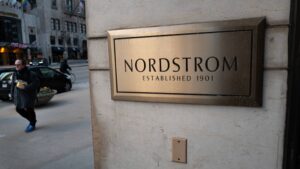Nordstrom Goes Private: A New Chapter in Retail History
In a significant move that signals both change and continuity in the retail landscape, Nordstrom, the iconic American department store, has announced plans to transition to a private company. The deal, valued at approximately $6.25 billion, involves a buyout by Nordstrom’s founding family in conjunction with Mexican retail giant El Puerto de Liverpool. This move is generating buzz across the industry, and at Extreme Investor Network, we’re diving deep into the implications of this transaction.
What’s Behind the Buyout?
The Nordstrom board of directors has unanimously approved this transition, expected to close in the first half of 2025. Under the terms, the Nordstrom family will retain a majority stake of 50.1%, while El Puerto de Liverpool will own the remaining 49.9%. This structure not only allows the founding family to preserve the legacy of Nordstrom but also brings in new capital and expertise from Liverpool, which operates successfully within the Mexican market.
Common shareholders will receive $24.25 in cash for each share they currently hold, representing a positive outcome for investors amid a challenging retail environment. This buyout comes after previous efforts to take the company private were unsuccessful, marking a significant milestone in Nordstrom’s long history.
Insights from Leadership
CEO Erik Nordstrom expressed his enthusiasm for this transition, stating, "Today marks an exciting new chapter for the business." He emphasized the foundational principle of helping customers feel good and look their best—a philosophy that has underpinned Nordstrom’s operations for over a century. With the support of Liverpool, there may be opportunities for the brand to revitalize its operations and explore new avenues for customer engagement.
The Retail Landscape Hits a Turning Point
Nordstrom is not alone in facing challenges within the luxury retail sector. As big box competitors like Walmart, Best Buy, and Target have noted, consumer preferences are evolving, with shoppers increasingly price-sensitive and selective about their purchases. While Nordstrom experienced a modest sales increase—reporting a 4% year-over-year revenue growth—concerns about a slow holiday season linger. This points to a broader trend: luxury brands must adapt in an environment where consumers prioritize value over desire.
The Future Looks Bright—But Not Without Challenges
As a company that began its journey as a shoe store over a century ago, evolving into a leading department store chain with more than 350 locations—including Nordstrom Rack and Nordstrom Local—this shift to private ownership opens new doors. With El Puerto de Liverpool, Nordstrom gains a partner familiar with the nuances of retail in both the U.S. and Mexico, potentially offering fresh strategies and stronger international ties.
El Puerto de Liverpool’s operational success can be harnessed to strengthen Nordstrom’s competitive position. The Mexican retailer runs two other successful department store chains and oversees 29 shopping centers, providing Nordstrom with a knowledgeable ally as it navigates the evolving retail territory.
Conclusion: Why This Matters for Investors
At Extreme Investor Network, we believe that this transition heralds an important juncture for investors and stakeholders in the retail market. The combination of family legacy and international expertise sets the stage for potentially revitalized operations, new innovations, and a stronger connection with consumers.
As the retail environment continues to shift, being attuned to developments such as these will be crucial for investors keen on maximizing their returns and staying ahead of market trends. Keep an eye on Nordstrom as it embarks on this exciting new chapter—it’s a story worth watching for the insights and strategies that could redefine retail as we know it.
Stay tuned to Extreme Investor Network for updates and analysis on this and other significant developments reshaping the business landscape.

